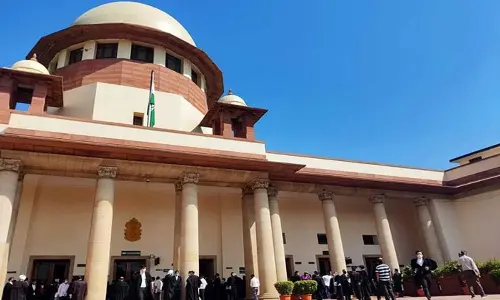NSE to appeal against Sebi order

The National Stock Exchange is contesting the penalty of Rs 1,000 crore and being barred for six months
Mumbai: NSE will appeal against a Sebi order in the co-location issue in which it has been penalised up to Rs 1,000 crore and barred from approaching market for the next six months at the Securities Appellate Tribunal (SAT).
When contacted, NSE spokesperson declined to comment. The exchange has made a regulatory filing on the development.
"The holding company is in the process of filing an appeal to contest the aforesaid orders with the Hon'ble Securities Appellate Tribunal, the future outcome of which is uncertain at this stage," the NSE said in its consolidated financial statements for 2018-19.
In a volume of five orders issued on May 1, Sebi had asked the NSE to "disgorge" its profits from co-location worth Rs 624.89 crore at 12 per cent interest to the Investor Protection and Education Fund (IPEF).
The amount with interest would add up to about Rs 1,000 crore. The Sebi had also penalised NSE's two former CEOs and founding members Ravi Narain and Chitra Ramakrishna.
Narain, who was heading the exchange between 2010 and 2013, was asked to deposit 25 per cent of his salary for the three fiscals in IPEF, while Ramakrishna, who was the CEO of the exchange starting fiscal 2014, was asked to deposit 25 per cent of her salary for that fiscal. She stepped down as CEO in December 2016.
In the order, the regulator had found lapses in the use of dark fibre by certain trading members in violation of NSEs own policy norms.
Dark fibre is a dedicated communication line through which messages travel faster than regular lines because of the absence of other traffic.But there is nothing illegal about using such faster connectivity infrastructure.
Sebi held that NSE had been taking inconsistent positions and its conduct broke its own rules right from the time when a non-registered member, Sampark, was granted permission in April 2015 to lay dark fibre cable for two brokerage firms leading to lack of fair play and favoritism.
"The data so received from NSE was being misused for the purpose of developing algo-based trading software for their commercial gains," S.K. Mohanty, a full-time member of Sebi had said earlier.
















